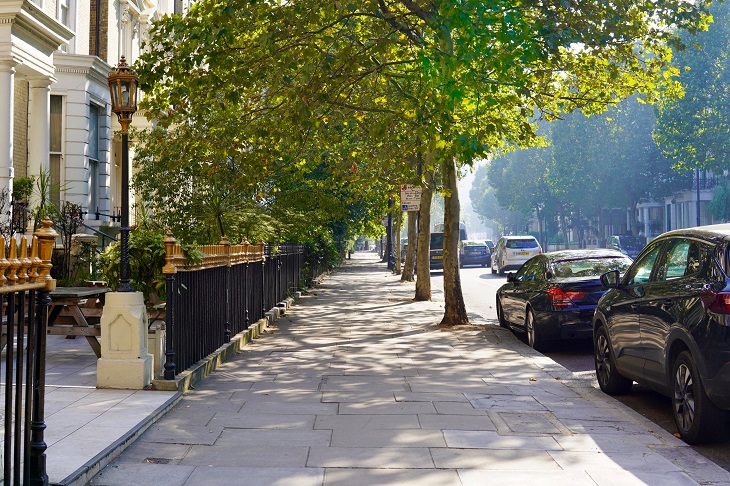Plantar fasciitis is a foot condition that affects more than two million Americans every year. Almost 10% of Americans will experience plantar fasciitis at some time during their lives. Plantar fasciitis can last for a short period of time or linger as a long-term, chronic condition.
Plantar fasciitis is a painful and debilitating condition. A person who is suffering from plantar fasciitis can find themselves immobile – so is plantar fasciitis a qualifying condition for a disabled parking permit? Read on to learn more.
What Is Plantar Fasciitis?
Plantar fasciitis is one of the most common causes of foot and heel pain in American adults. The condition occurs when the band of tissue that runs along the bottom of the foot and connects the heel bone to the toe bones becomes inflamed, sensitive, and achy.
What Are The Symptoms Of Plantar Fasciitis?
The pain caused by plantar fasciitis is usually most acute when a person moves after a period of resting, such as when they get out of bed in the morning or stand up after sitting for a period of time. For this reason, plantar fasciitis pain can be especially acute after driving.
The most common symptom of plantar fasciitis is a stabbing pain in the bottom of the foot near the heel. This pain can also be triggered by movement and exercise.

What Causes Plantar Fasciitis?
Plantar fasciitis usually occurs when the plantar fascia becomes damaged, often by wear and tear. The plantar fascia is the fibrous tissue that runs between the heel and the toes. It connects the heel bone to the toes, supports the arch of the foot, and acts as a shock absorber when we walk.
If the plantar fascia is put under repeated stress and pressure, it can stretch, and small tears can accumulate. This stretching and tearing can cause irritation and inflammation.
Risk factors for plantar fasciitis include:
- Excessive bodyweight
- Age (plantar fasciitis is most common in older people)
- Doing a lot of exercise that places stress on the heel (such as long-distance running or dancing)
- Occupations that require a lot of standing
- Abnormal walking gait
- Having flat feet or a high arch
How Does Plantar Fasciitis Affect Daily Life?
A person who is suffering from plantar fasciitis will be affected in several ways. They will have to endure chronic pain, including the possibility of acute pain episodes throughout the day.
People with the condition usually find walking difficult, and therefore their ability to get around without needing to stop to rest frequently or without using an assistive device can be severely curtailed.
Plantar Fasciitis And Disabled Parking
The disabled parking program exists to provide people with disabilities with improved access to public and private areas, buildings, and amenities. So, can you get a disability placard for plantar fasciitis?
Is Plantar Fasciitis A Qualifying Condition For A Disability Placard?
Yes, you can get a disabled parking permit for plantar fasciitis! In all states, a person will qualify for a disability placard if:
- They cannot walk for 200 feet without needing to stop to rest, or
- they cannot walk without the aid of an assistive device such as a cane, crutch, Zimmer frame, or without the help of another person.
People with plantar fasciitis will often qualify for a disabled parking permit because they satisfy one or both of these conditions.
What Types Of Disability Placards Are Available For Plantar Fasciitis?
Plantar fasciitis can last for a relatively short period of time or it can be a chronic, long-term condition. This means that a person who suffers from the condition can qualify for either a permanent or temporary disabled parking permit, depending on how long the condition lasts in their case.

Is Plantar Fasciitis A Permanent Disability?
If plantar fasciitis lasts a long time, it can be considered a permanent disability and qualify a person for a permanent disabled parking placard or license plate.
Plantar Fasciitis Disability Rating
If your plantar fasciitis is military service-related, you may be eligible for a Veteran’s Association disability rating for foot pain of 20% if one foot is affected, or 30% if both feet are affected.
How Can I Get A Disability Placard For Plantar Fasciitis?
You can get a disabled parking permit for plantar fasciitis by having a video consultation with a doctor at the Dr. Handicap online clinic. Once your condition has been verified, the doctor will send you a certified DMV application for your state.
Featured image by andreas160578 on Pixabay







